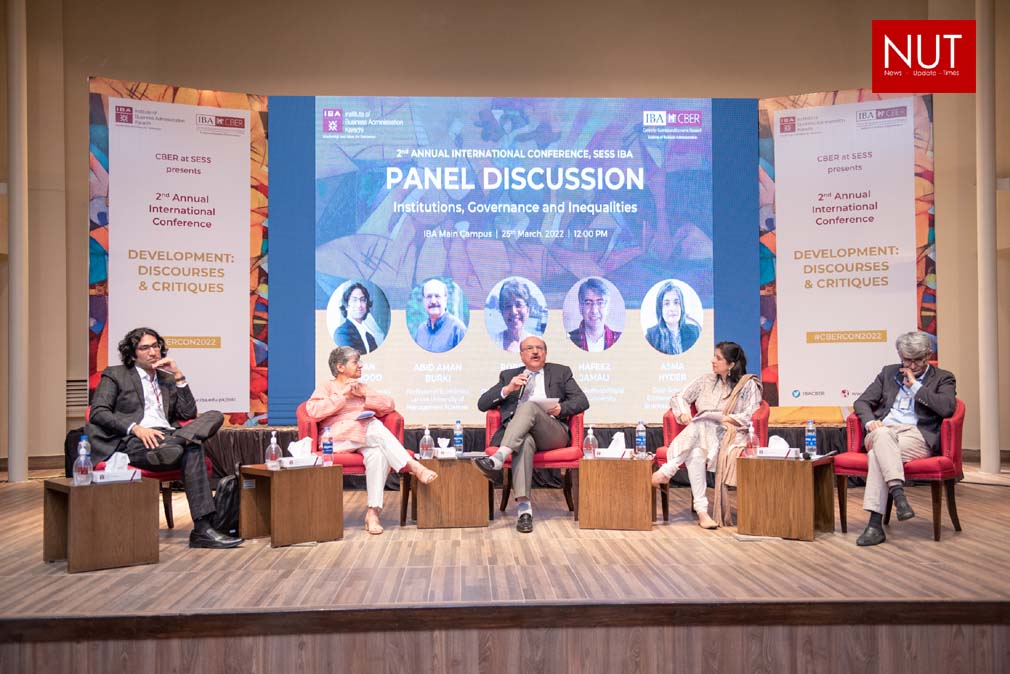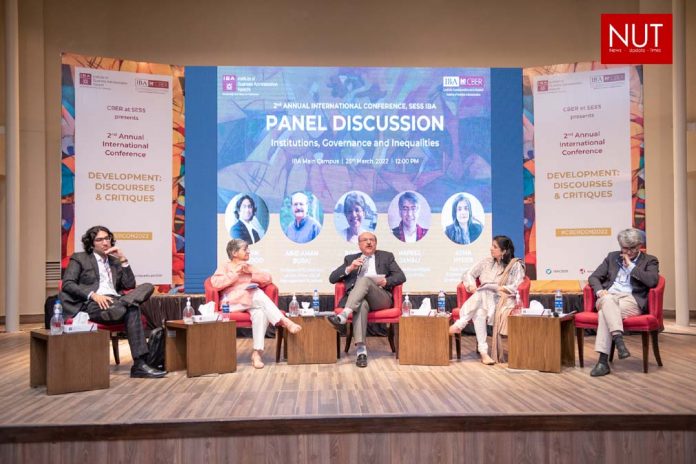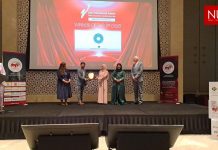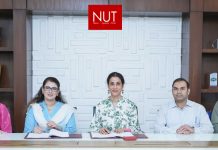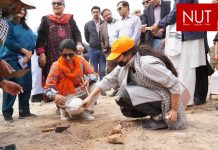Karachi (Muhammad Yasir) The School of Economics and Social Sciences (SESS), in collaboration with the Center for Business and Economic Research (CBER) at the IBA Karachi, hosted the 2nd Annual International Conference titled, ‘Development: Discourses and Critiques’. The three-day conference is taking place from March 25-27, 2022 at the IBA Karachi, Main Campus.
This year’s theme invites works from a wide range of disciplines to critique, question and reconsider the experiences of transnational, national and sub-national actors with the development process. What does ‘development’ mean for different actors, and how has this narrative shifted over time? How does development define and redefine power relations and what implications does this have for different groups? How have colonial experiences shaped futures and how does one deconstruct ideas rooted in these experiences?
To encourage innovative and diversity within modes of thinking, the conference is hosting presenters and participants from diverse backgrounds, including Skardu, Sukkur, Gilgit, Quetta, and Islamabad from Pakistan, and multiple professors from esteemed universities from the USA.
By centering radical subthemes, including but not limited to, decolonial and feminist frameworks, this conference aims to center critical perspectives that help us gain a nuanced understanding of social change and development.
The first keynote speaker was Dr. Mushfiq Mobarak, Professor of Economics, Yale University, USA. He spoke in depth on ‘Seasonal Poverty and Seasonal Migration’. The session was moderated by Arooj Waheed Dar, Lecturer, SESS, IBA Karachi. Dr. Mobarak recognized the forms of poverty that emerge during seasonal changes and highlighted its implications, specifically in the form of seasonal hunger. The second section of the address focused on the attempts that help address this problem through structural strategies such as micro-loans that help bridge the financial strain in the lean season.
The first panel discussion of Day 1 was titled ‘Institutions, Governance and Inequalities’ which included the following four scholars: Dr. Sultan Mehmood, New Economic School, Moscow; Dr. Abid Aman Burki, Senior Research Fellow, Mahbab ul Haq Research Centre, Lahore University of Management Sciences; Dr. Hafeez Jamali, Senior Anthropologist and Civil Servant; Robina Ather, Chairperson, National Tariff Commission, and Dr. Asma Hyder, Professor of Economics and Dean, SESS, IBA Karachi. The session highlighted various statistics on the economic and social inequalities in Pakistan, and also included the inclusion of indigenous communities within the policy-making process, and judicial independence in Pakistan.
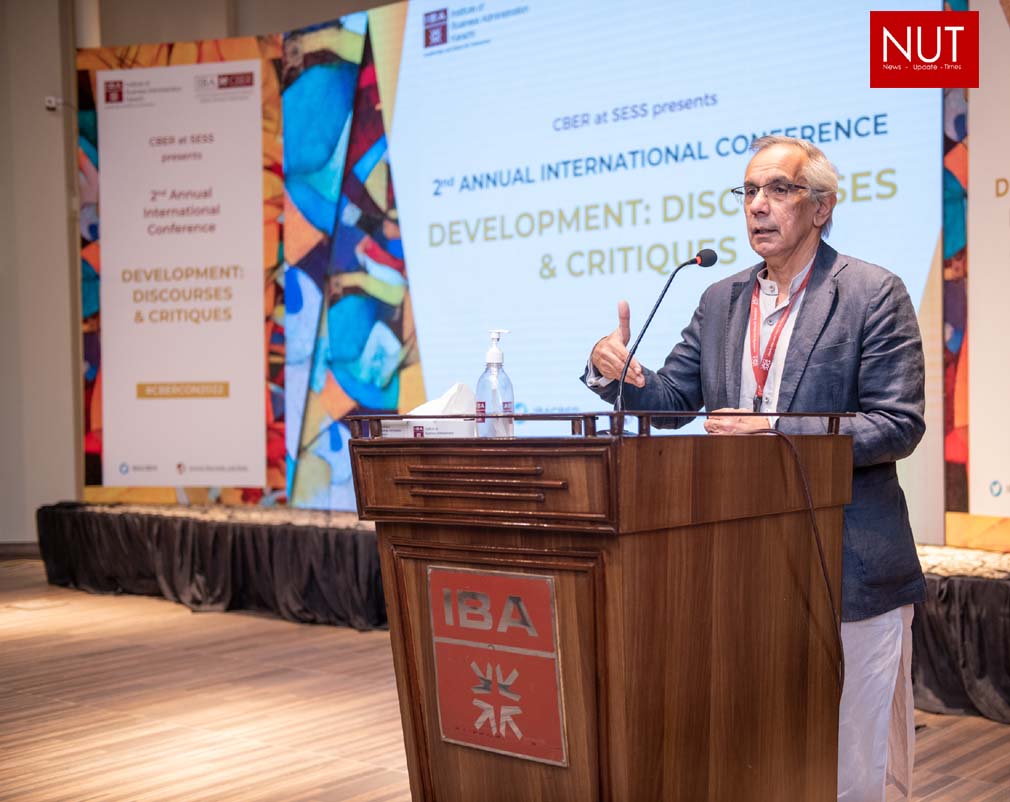 In the session titled ‘Agrarian Crisis and South Asian Political Economy’, Dr. Barbara Harriss-White, Professor Emeritus of Development Studies and Emeritus Fellow of Wolfson College, University of Oxford, was in conversation with Dr. Ahmed Azhar from the IBA as a moderator. Dr. Harriss-White shared her close insights and research on the South Asian political economy, particularly food and energy, and aspects of deprivation.
In the session titled ‘Agrarian Crisis and South Asian Political Economy’, Dr. Barbara Harriss-White, Professor Emeritus of Development Studies and Emeritus Fellow of Wolfson College, University of Oxford, was in conversation with Dr. Ahmed Azhar from the IBA as a moderator. Dr. Harriss-White shared her close insights and research on the South Asian political economy, particularly food and energy, and aspects of deprivation.
The second panel of the day was titled ‘Urban Development: Practices and Realities’ and included five scholars and researchers: Dr. Mubbashir Rizvi, Anthropologist, American University; Palwashay Shahab, Social Justice Lawyer and Researcher; Haya Fatima Iqbal, Emmy winning documentary filmmaker; Dr. Laila Farooq, Assistant Professor, IBA Karachi and Director, CBER; and Dr. Shehram Mokhtar, Assistant Professor, IBA Karachi.
The first day also included around 20 presentations by undergraduate and graduate students who shared their work on various segments of the bigger field of development. Two student circles, one on calligraphy, and another on breath-body work, also took place. \